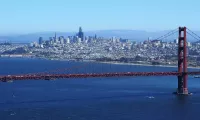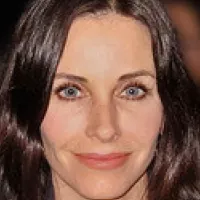Sri Lanka, formerly Ceylon, is an island country in South Asia, situated in the Indian Ocean, southwest of the Bay of Bengal, separated from India by the Gulf of Mannar and Palk Strait. It shares maritime borders with the Maldives and India. Sri Jayawardenepura Kotte is the legislative capital, while Colombo serves as the administrative and judicial capital and largest city, acting as the political, financial, and cultural hub. Kandy is the second-largest city and was the capital of the last native kingdom. Sinhala and Tamil are the most spoken languages, spoken by approximately 17 million and 5 million people respectively.
1903: First Music Album Recorded
In 1903, the first music album, Nurthi, was recorded and released through Radio Ceylon.
1905: First Modern-Day Novel Appeared
In 1905, the first modern-day novel, "Meena" by Simon de Silva, appeared in Sri Lanka.
1906: First case of Malaria outbreak
In 1906, the first case of the ongoing Malaria outbreak in Ceylon was documented.
1911: Discovery of the Galle Trilingual Inscription
In 1911, S. H. Thomlin discovered the Galle Trilingual Inscription, a stone tablet written in Chinese, Tamil, and Persian, in Galle. The tablet is now preserved in the Colombo National Museum.
1919: Formation of the Ceylon National Congress
In 1919, major Sinhalese and Tamil political organizations united to form the Ceylon National Congress, led by Ponnambalam Arunachalam, advocating for constitutional reforms.
1923: Sri Lanka Broadcasting Corporation Established
In 1923, the Sri Lanka Broadcasting Corporation (formerly Radio Ceylon) was established by Edward Harper, becoming the oldest-running radio station in Asia.
1931: Donoughmore reforms introduced
In 1931, the Donoughmore reforms repudiated communal representation and introduced universal adult franchise in Ceylon.
1935: Establishment of the Lanka Sama Samaja Party in 1935
In 1935, the Lanka Sama Samaja Party (LSSP) was established, making it the oldest political party in Sri Lanka.
1937: Demand for 50-50 representation
In 1937, Tamil leader G. G. Ponnambalam demanded a 50–50 representation (50% for the Sinhalese and 50% for other ethnic groups) in the State Council.
1942: Special Education Committee Proposed Reforms
In 1942, a special education committee proposed extensive reforms to establish an efficient and quality education system for the people of Sri Lanka.
1944: Founding of the All Ceylon Tamil Congress in 1944
In 1944, G. G. Ponnambalam founded the All Ceylon Tamil Congress (ACTC).
1944: Soulbury reforms
In 1944, the Soulbury reforms did not meet the demand for 50-50 representation.
1945: Free Education System Established
In 1945, the free education system was established in Sri Lanka as a result of the initiative of C. W. W. Kannangara and A. Ratnayake, providing universal free education from primary to tertiary levels.
1946: Establishment of the UNP in 1946
In 1946, D. S. Senanayake established the United National Party (UNP).
1947: Kadawunu Poronduwa Released
In 1947, the movie "Kadawunu Poronduwa (The Broken Promise)", produced by S. M. Nayagam of Chitra Kala Movietone, heralded the coming of Sri Lankan cinema.
February 1948: Independence proclaimed
On February 4, 1948, independence was proclaimed ushering in dominion status, and D. S. Senanayake became the first Prime Minister of Ceylon.
1948: Socialism influenced economic policies from 1948
From 1948, socialism strongly influenced Sri Lanka's government's economic policies.
1948: Duncan White wins silver at London Olympics
In 1948, Duncan White won a silver medal at the London Olympics for the men's 400 metres hurdles.
1948: Sri Lanka gains independence
In 1948, Sri Lanka achieved independence as a dominion within the British Commonwealth.
1948: Independence as the Dominion of Ceylon
In 1948, the British crown colony of Ceylon achieved independence as the Dominion of Ceylon.
1948: Focus on internal security since 1948
Since independence in 1948, the primary focus of the armed forces has been internal security.
1949: Formation of the Illankai Tamil Arasu Kachchi in 1949
In 1949, a dissident group led by S.J.V. Chelvanayakam broke away and formed the Illankai Tamil Arasu Kachchi (ITAK), also known as the Federal Party.
1949: Sri Lanka-China relations started in 1949
Sri Lanka-China relations started in 1949, when the People's Republic of China was formed.
1950: Colombo Plan proposal in 1950
In 1950, Sri Lankan Finance Minister J. R. Jayewardene, together with then Australian Foreign Minister Sir Percy Spencer, proposed the Colombo Plan at the Commonwealth Foreign Minister's Conference held in Colombo.
July 1951: Foundation of the SLFP in July 1951
In July 1951, S. W. R. D. Bandaranaike founded the Sri Lanka Freedom Party (SLFP).
1951: San Francisco Peace Conference in 1951
At the San Francisco Peace Conference in 1951, Sri Lanka argued for a free Japan and refused to accept payment of reparations for World War II damage.
1952: Rubber-Rice Pact signed in 1952
In 1952, Sri Lanka and China signed an important Rubber-Rice Pact.
1953: Sri Lankan National Badminton Championships held
The Sri Lankan National Badminton Championships was annually held starting in 1953.
1955: Sri Lanka joined the United Nations in 1955
Sri Lanka became a member of the United Nations in 1955.
1955: Asian-African Conference in 1955
Sri Lanka played a vital role at the Asian–African Conference in 1955, which was an important step in the crystallisation of the NAM.
1956: Rekava (Line of Destiny) Directed by Lester James Peiris
In 1956, Lester James Peiris directed "Rekava (Line of Destiny)", a movie which led to global acclaim.
1956: S. W. R. D. Bandaranaike elected prime minister
In 1956, S. W. R. D. Bandaranaike was elected prime minister and he later introduced the Sinhala Only Act, recognizing Sinhala as the only official language of the government.
1956: SLFP victory in 1956
In 1956, SLFP registered its first victory in the Parliamentary election, defeating the ruling UNP.
1956: Bandaranaike government policy changes in 1956
In 1956, the Bandaranaike government significantly changed the pro-western policies set by the previous UNP government.
1956: British Royal Navy leaves Trincomalee
In 1956, the British Royal Navy withdrew its station from Trincomalee.
1956: Golden Age of Sri Lankan Drama Began
The golden age of Sri Lankan drama and theatre began in 1956 with the staging of "Maname", a play written by Ediriweera Sarachchandra.
1958: Partial reversal of the Sinhala Only Act
In 1958, the Sinhala Only Act was partially reversed, but it still posed a grave concern for the Tamil community.
1959: Assassination of Bandaranaike
In 1959, Prime Minister Bandaranaike was assassinated by an extremist Buddhist monk.
1959: Cuba recognized by Sri Lanka in 1959
In 1959, The Bandaranaike government recognized Cuba under Fidel Castro.
July 1960: Sirimavo Bandaranaike became prime minister in July 1960
Following the parliamentary election in July 1960, Sirimavo Bandaranaike became the prime minister, becoming the world's first elected female head of government.
1960: Sirimavo Bandaranaike becomes prime minister
In 1960, Sirimavo Bandaranaike took office as prime minister.
1962: Attempted coup d'état
In 1962, the government withstood an attempted coup d'état.
1964: Gamperaliya (The Changing Village) Directed by Lester James Peiris
In 1964, Lester James Peiris directed "Gamperaliya (The Changing Village)", a movie which led to global acclaim.
1964: Sirima-Shastri Pact of 1964
The Sirima-Shastri Pact of 1964 was signed between Sri Lankan and Indian leaders to solve the dispute over the status of plantation workers of Indian origin.
1965: Founding of the Janatha Vimukthi Peramuna in 1965
In 1965, Rohana Wijeweera founded the Janatha Vimukthi Peramuna, a Marxist–Leninist political party.
1968: Golu Hadawatha (Cold Heart) Directed by Lester James Peiris
In 1968, Lester James Peiris directed "Golu Hadawatha (Cold Heart)", a movie which led to global acclaim.
1970: Nidhanaya (The Treasure) Directed by Lester James Peiris
In 1970, Lester James Peiris directed "Nidhanaya (The Treasure)", a movie which led to global acclaim.
1971: Marxist insurrection
In 1971, Ceylon experienced a Marxist insurrection, which was quickly suppressed.
1972: Sri Lanka becomes a republic
In 1972, Sri Lanka transitioned from a dominion to a republic.
1972: Creation of the Tamil United Front in 1972
In 1972, the ACTC and ITAK created the Tamil United Front (later Tamil United Liberation Front) due to constitutional reforms.
1972: Ceylon becomes Sri Lanka
In 1972, the country became a republic named Sri Lanka, repudiating its dominion status.
1972: Name changed to "Free, Sovereign and Independent Republic of Sri Lanka"
In 1972, the formal name of the country was changed to "Free, Sovereign and Independent Republic of Sri Lanka".
1973: Muhammad Lafir wins World Billiards Championship
In 1973, Muhammad Lafir won the World Billiards Championship, marking the highest feat by a Sri Lankan in a Cue sport.
1974: Sirima-Gandhi Pact and Kachchatheevu cession in 1974
In 1974, the Sirima-Gandhi Pact was signed, and Kachchatheevu, a small island in Palk Strait, was formally ceded to Sri Lanka.
1975: Assassination of Jaffna Mayor
In 1975, the assassination of Jaffna Mayor Alfred Duraiyappah by the Liberation Tigers of Tamil Eelam (LTTE) marked a crisis point.
1976: Fifth NAM summit in Colombo in 1976
In 1976, the fifth NAM summit was held in Colombo.
1977: Introduction of free market economy in 1977
In 1977, the free market economy was introduced to Sri Lanka, incorporating privatisation, deregulation, and the promotion of private enterprise.
1977: J. R. Jayawardene comes to power
In 1977, the government of J. R. Jayawardene swept to power, introducing a new constitution and a free-market economy.
September 1978: Name changed to "Democratic Socialist Republic of Sri Lanka"
On September 7, 1978, the country's name was changed to the "Democratic Socialist Republic of Sri Lanka".
1978: 13th Amendment of the 1978 constitution
In 1978, the 13th Amendment of the constitution established provincial councils after decades of increasing demand for decentralisation of the government.
1979: Broadcast Television Introduced
In 1979, broadcast television was introduced in Sri Lanka with the launch of the Independent Television Network.
1979: Movie Attendance Rose
In 1979, movie attendance rose to an all-time high in Sri Lanka but has been in a steady decline since then.
1980: UN Human Rights Council Documented Disappearances
Since the Working Group came into being in 1980, the UN Human Rights Council has documented over 12,000 named individuals who have disappeared after detention by security forces in Sri Lanka, the second-highest figure in the world.
1981: Founding of the Sri Lanka Muslim Congress in 1981
In 1981, the Sri Lanka Muslim Congress, the largest Muslim political party in Sri Lanka, was founded.
1983: Start of on-and-off insurgency
Beginning in 1983, ethnic tensions were manifested in an on-and-off insurgency against the government by the LTTE.
1983: Start of the Sri Lankan Civil War
In 1983, the Sri Lankan Civil War began, marking the start of a 26-year conflict.
1985: Rounds of peace talks
From 1985 to 2006, the Sri Lankan government and Tamil insurgents held four rounds of peace talks without success.
1986: Sri Lanka Wins Asia Cup
In 1986, Sri Lanka won the Asia Cup.
1987: Establishment of provincial councils in 1987
In 1987, the 13th Amendment of the 1978 constitution established provincial councils, giving them legal status.
1987: Indo-Sri Lanka Accord signed
In 1987, the Indo-Sri Lanka Accord was signed, and the Indian Peace Keeping Force (IPKF) was deployed in northern Sri Lanka to stabilise the region by neutralising the LTTE.
1989: Temporary merger of Northern and Eastern provinces in 1989
Between 1989 and 2006, the Northern and Eastern provinces were temporarily merged to form the North-East Province.
October 1990: Expulsion of Sri Lankan Moors
In October 1990, the LTTE expelled Sri Lankan Moors (Muslims by religion) from northern Sri Lanka.
1992: Private Television Networks Begin Broadcasting
In 1992, private television networks began broadcasting in Sri Lanka, ending the state-controlled monopoly.
1995: Sri Lanka wins South Asian Gold Cup
In 1995, the Sri Lanka national football team won the prestigious South Asian Gold Cup.
March 1996: Sri Lanka Wins Cricket World Cup
On March 17, 1996, the Sri Lanka national cricket team won the 1996 Cricket World Cup, defeating Australia in the final.
1997: Sri Lanka Wins Asia Cup
In 1997, Sri Lanka won the Asia Cup.
1999: Forest cover in 1999
In 1999, forest cover in Sri Lanka had depleted to 29.6 percent of the country's land area.
2000: Susanthika Jayasinghe wins silver at Sydney Olympics
In 2000, Susanthika Jayasinghe won a silver medal at the Sydney Olympics for the women's 200 metres.
October 2001: Formation of the Tamil National Alliance in October 2001
In October 2001, the Tamil National Alliance succeeded Tamil political parties following a period of turbulence as Tamil militants rose to power in the late 1970s.
2002: Ceasefire agreement signed
In 2002, the Sri Lankan government and LTTE signed a Norwegian-mediated ceasefire agreement.
2004: Sri Lanka Wins Asia Cup
In 2004, Sri Lanka won the Asia Cup.
2004: 2004 Indian Ocean tsunami
In 2004, Sri Lanka's mangrove ecosystem, spanning over 7,000 hectares, played a vital role in buffering the force of the waves during the Indian Ocean tsunami.
2004: Asian tsunami
In 2004, the Asian tsunami killed over 30,000 and displaced over 500,000 people in Sri Lanka.
2005: Per capita income doubled from 2005 to 2011
The per capita income of Sri Lanka doubled from 2005 to 2011.
2006: End of the temporary merger of Northern and Eastern provinces in 2006
Between 1989 and 2006, the Northern and Eastern provinces were temporarily merged to form the North-East Province.
2006: Resumption of fighting
In 2006, both LTTE and the government resumed fighting after four rounds of peace talks from 1985 without success.
2007: Sri Lanka Becomes Runners-Up in Cricket World Cup
In 2007, Sri Lanka became the runners-up of the Cricket World Cup.
2008: Sri Lanka Wins Asia Cup
In 2008, Sri Lanka won the Asia Cup.
2008: Government backs out of ceasefire
In 2008, the Sri Lankan government officially backed out of the ceasefire agreement.
2008: Sri Lanka Ranked Third Most Religious Country
In a 2008 Gallup poll, Sri Lanka was ranked the third most religious country in the world, with 99% of Sri Lankans stating that religion was an important part of their daily life.
May 2009: End of Civil War
In May 2009, the Sri Lanka Armed Forces defeated the LTTE, ending the 26-year-long civil war.
2009: Sri Lanka Becomes Runners-Up of ICC World Twenty20
In 2009, Sri Lanka became the runners-up of the ICC World Twenty20.
2009: End of the Sri Lankan Civil War
In 2009, the Sri Lankan Civil War concluded with the defeat of the Liberation Tigers of Tamil Eelam (LTTE) by the Sri Lankan Armed Forces.
2009: Civil War Ends
In 2009, the civil war in Sri Lanka ended.
July 2010: Muttiah Muralitharan Achieves Record 800 Wickets
In July 2010, Muttiah Muralitharan achieved a record 800 wickets in a Test Match against India, which Sri Lanka won by 10 Wickets.
2010: New York Times list of places to visit in 2010
In 2010, The New York Times placed Sri Lanka at the top of its list of 31 places to visit.
2010: Forest cover in 2010
In 2010, forest cover in Sri Lanka had depleted to 28.7 percent of the country's land area.
2010: Gini coefficient of 0.36 in 2010
Income inequality has dropped in recent years, indicated by a Gini coefficient of 0.36 in 2010.
2010: GDP growth in the Northern Province in 2010
With the end of the war, the Northern Province reported a record 22.9% GDP growth in 2010.
July 2011: Number of registered political parties in July 2011
As of July 2011, the number of registered political parties in Sri Lanka was 67.
2011: Sri Lanka Becomes Runners-Up in Cricket World Cup
In 2011, Sri Lanka became the runners-up of the Cricket World Cup.
2011: Plan to rename organizations with Ceylon
In 2011, the Sri Lankan government announced plans to rename all organizations under its authority that still used the name Ceylon.
2011: Sri Lankan National Badminton Championships held
The Sri Lankan National Badminton Championships was annually held until 2011.
2011: Per capita income doubled from 2005 to 2011
The per capita income of Sri Lanka doubled from 2005 to 2011.
2012: Sri Lanka Becomes Runners-Up of ICC World Twenty20
In 2012, Sri Lanka became the runners-up of the ICC World Twenty20.
2012: Sri Lanka wins Carrom World Championship
In 2012, Sri Lanka won the Carrom World Championship title, with the men's team becoming champions and the women's team winning second place.
2012: Freedom from Torture Reports Torture Survivors
In 2012, the UK charity Freedom from Torture reported that it had received 233 referrals of torture survivors from Sri Lanka for clinical treatment or other services.
May 2013: UN Human Rights Commissioner Visits Sri Lanka
In May 2013, UN Human Rights Commissioner Navanethem Pillay visited Sri Lanka and stated that democracy had been undermined and the rule of law eroded, citing the military's increasing involvement in civilian life and reports of military land grabbing.
2014: Sri Lanka Wins ICC World Twenty20
In 2014, Sri Lanka won the ICC World Twenty20 played in Bangladesh, beating India in the final.
2015: Mahinda Rajapaksa lost the 2015 presidential elections
In 2015, President Mahinda Rajapaksa lost the presidential elections, ending his ten-year presidency.
2015: Domestic and external debt increased in 2015
Since early 2015, domestic debt increased by 12% and external debt by 25%.
April 2016: IMF bailout loan in April 2016
In April 2016, The IMF had agreed to provide a US$1.5 billion bailout loan after Sri Lanka provided a set of criteria intended to improve its economy.
November 2016: IMF report in November 2016
In November 2016, the IMF reported that the initial disbursement was larger than US$150 million originally planned, a full US$162.6 million.
2016: Sri Lanka ranked 5th in the World Giving Index in 2016
In 2016, Sri Lanka ranked 5th in the World Giving Index.
2016: Sri Lanka wins Carrom World Championship
In 2016, Sri Lanka won the Carrom World Championship title, with the men's team becoming champions and the women's team winning second place.
2018: Split of political parties in 2018
After 2018, the Samagi Jana Balawegaya split from the UNP, and the Sri Lanka Podujana Peramuna split from the UPFA.
2018: China bailout Sri Lanka in 2018
In 2018 China agreed to bail out Sri Lanka with a loan of $1.25 billion to deal with foreign debt repayment spikes in 2019 to 2021.
2018: Sri Lanka wins Carrom World Championship
In 2018, Sri Lanka won the Carrom World Championship title, with the men's team becoming champions and the women's team winning second place.
2018: Sri Lanka classified as a frontier market in 2018
S&P Dow Jones Indices classifies Sri Lanka as a frontier market as of 2018.
April 2019: 2019 Sri Lanka Easter bombings
In April 2019, the 2019 Sri Lanka Easter bombings were carried out by the terrorist group National Thowheeth Jama'ath resulting in the death of 261 people, and the subsequent anti terrorist operation by the Sri Lanka Army.
November 2019: Gotabaya Rajapaksa won the presidential election in November 2019
In November 2019, Gotabaya Rajapaksa won the presidential election and was sworn in as the new president of Sri Lanka.
2019: Loan to deal with foreign debt repayment spikes in 2019
In 2018 China agreed to bail out Sri Lanka with a loan of $1.25 billion to deal with foreign debt repayment spikes in 2019 to 2021.
2019: Start of Economic Troubles
In 2019, Sri Lanka's economic troubles began, leading to a severe economic crisis caused by factors such as increasing foreign debt, government budget deficits, and a food crisis.
2019: Economic problems in 2019
Since 2019 Sri Lanka's economy started worsening and also fueled the political crisis of 2022.
July 2020: Government Targets Critics
On July 29, 2020, Human Rights Watch said that the Sri Lanka government has targeted lawyers, human rights defenders, and journalists to suppress criticism against the government.
July 2020: Sri Lanka Eliminates Rubella and Measles
On July 8, 2020, the World Health Organization declared that Sri Lanka had successfully eliminated rubella and measles ahead of their 2023 target.
August 2020: Rajapaksa family's political party victory in August 2020
In August 2020, the Rajapaksa family's political party, Sri Lanka People's Front (SLPP), obtained a landslide victory and a clear majority in the parliament.
2020: Newspapers, TV, and Radio Stations in Operation
As of 2020, 192 newspapers, 25 TV stations, and 58 radio stations were in operation in Sri Lanka.
2020: Sector contribution to GDP in 2020
As of 2020, the service sector makes up 59.7% of GDP, the industrial sector 26.2%, and the agriculture sector 8.4% in Sri Lanka.
June 2021: Sri Lanka Bans Inorganic Fertilisers and Pesticides
In June 2021, Sri Lanka imposed a nationwide ban on inorganic fertilisers and pesticides, a decision that was welcomed by some but criticized by others who warned of potential agricultural and financial crises.
August 2021: Food Emergency Declared
In August 2021, a food emergency was declared in Sri Lanka due to the ongoing economic crisis.
September 2021: Sri Lanka Declares Economic Crisis
In September 2021, Sri Lanka declared a major economic crisis, leading to the resignation of the Chief of the Central Bank and the declaration of emergency regulations by the Parliament to ban "food hoarding".
September 2021: Government Declares Economic Emergency
In September 2021, the government declared an economic emergency due to the falling national currency exchange rate, rising inflation from high food prices, and pandemic-related tourism restrictions further decreasing the country's income.
November 2021: Sri Lanka Abandons Organic Farming Plan
In November 2021, Sri Lanka abandoned its plan to become the world's first organic farming nation following rising food prices and weeks of protests against the plan.
December 2021: Damage to agricultural production
As of December 2021, the damage to agricultural production was already done, with prices having risen substantially for vegetables in Sri Lanka, and time needed to recover from the crisis. The ban on fertiliser has been lifted for certain crops, but the price of urea has risen internationally due to the price for oil and gas.
2021: Loan to deal with foreign debt repayment spikes in 2021
In 2018 China agreed to bail out Sri Lanka with a loan of $1.25 billion to deal with foreign debt repayment spikes in 2019 to 2021.
June 2022: Muttiah Muralitharan Has Highest Aggregate Wickets
As of June 2022, Muttiah Muralitharan has the highest aggregate wickets in Test Cricket with a record 800 wickets.
June 2022: Collapse of the Sri Lankan Economy Declared
In June 2022, Prime Minister Ranil Wickremesinghe declared the collapse of the Sri Lankan economy in parliament.
July 2022: Storming of President's House
In July 2022, massive street protests culminated with the storming of the President's House, leading to President Gotabaya Rajapaksa fleeing the country and resigning.
July 2022: Ranil Wickremesinghe elected president in July 2022
On 20 July 2022, Ranil Wickremesinghe was elected as the ninth President of Sri Lanka via a parliamentarian election.
July 2022: Ranil Wickremesinghe elected president
On July 20, 2022, Ranil Wickremesinghe was elected as the new president of Sri Lanka.
2022: Political crisis in 2022
In 2022, a political crisis started in Sri Lanka due to the power struggle between President Gotabaya Rajapaksa and the Parliament of Sri Lanka, and also due to the worsening economy of Sri Lanka since 2019.
2022: Paddy Harvest Prediction
In 2022, a senior lecturer at the University of Peradeniya predicted that the ban would reduce the paddy harvest by an unprecedented 50%.
2022: Janatha Vimukthi Peramuna gaining popularity in 2022
Since 2022, the Janatha Vimukthi Peramuna party has gained popularity.
2023: WHO Target Achievement
In July 2020, the World Health Organization declared that Sri Lanka had successfully eliminated rubella and measles ahead of their 2023 target.
2023: Increase in Tourist Arrivals
In the first half of 2023, tourist arrivals to Sri Lanka increased to 1.01 million, up 62% from the same period.
September 2024: Anura Kumara Dissanayake sworn in as president
On September 23, 2024, Anura Kumara Dissanayake was sworn in as Sri Lanka's new president after winning the presidential election.
November 2024: NPP gains two-thirds majority in parliament
On November 14, 2024, President Anura Kumara Dissanayake's National People's Power (NPP) secured a two-thirds majority in parliament in the Sri Lankan parliamentary election.
2024: Global Peace Index in 2024
According to the 2024 Global Peace Index, Sri Lanka is the 100th most peaceful country in the world.
2024: Anura Kumara Dissanayake defeated President Ranil Wickremesinghe in 2024
In 2024 presidential elections, Anura Kumara Dissanayake defeated President Ranil Wickremesinghe.
2024: Tourism Revenue Reaches Over $1.5 Billion
In the first half of 2024, Sri Lanka's tourism revenue reached over $1.5 billion, a 78% increase year-on-year, and tourist arrivals increased to 1.01 million, up 62% from the same period in 2023. This growth is attributed to government measures and improvements from SriLankan Airlines.
2025: Sri Lanka ranked 6th in ICC Men's Test Team Rankings
In 2025, Sri Lanka is ranked 6th in the ICC Men's Test Team Rankings with a rating of 86.
2025: Sri Lanka Ranked 93rd in Global Innovation Index
In 2025, Sri Lanka was ranked 93rd in the Global Innovation Index.
Mentioned in this timeline
India officially the Republic of India is a South Asian...

San Francisco is a major commercial financial and cultural hub...
China officially the People's Republic of China is an East...
Japan is an East Asian island country located in the...

Football is a family of team sports primarily involving kicking...
Australia officially the Commonwealth of Australia encompasses the Australian mainland...
Trending

30 minutes ago Declan Rice's behavior scrutinized after derby win; Scholes deems him too emotional.

30 minutes ago Donovan Clingan shines for Trail Blazers: Draft prospect improves shooting and raises questions.

31 minutes ago Shakira's Mexico City Concert: Security, Tickets, and Traffic Updates

31 minutes ago Courteney Cox wears 90s jeans, stays overnight with on-screen husband Greg Kinnear.
31 minutes ago Jimmy Kimmel faced suspension, FCC complaints after Charlie Kirk remarks and reinstatement.

31 minutes ago Padma Lakshmi celebrates daughter Krishna's 16th birthday with an epic, week-long celebration.
Popular

Jesse Jackson is an American civil rights activist politician and...

Susan Rice is an American diplomat and public official prominent...

Barack Obama the th U S President - was the...

Michael Joseph Jackson the King of Pop was a highly...

Bernie Sanders is a prominent American politician currently serving as...

XXXTentacion born Jahseh Dwayne Ricardo Onfroy was a controversial yet...